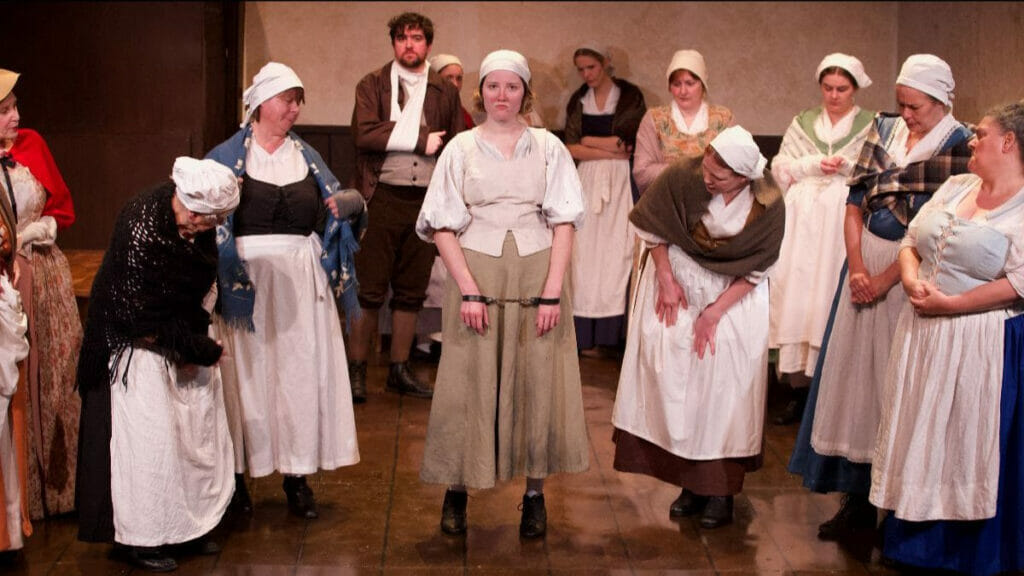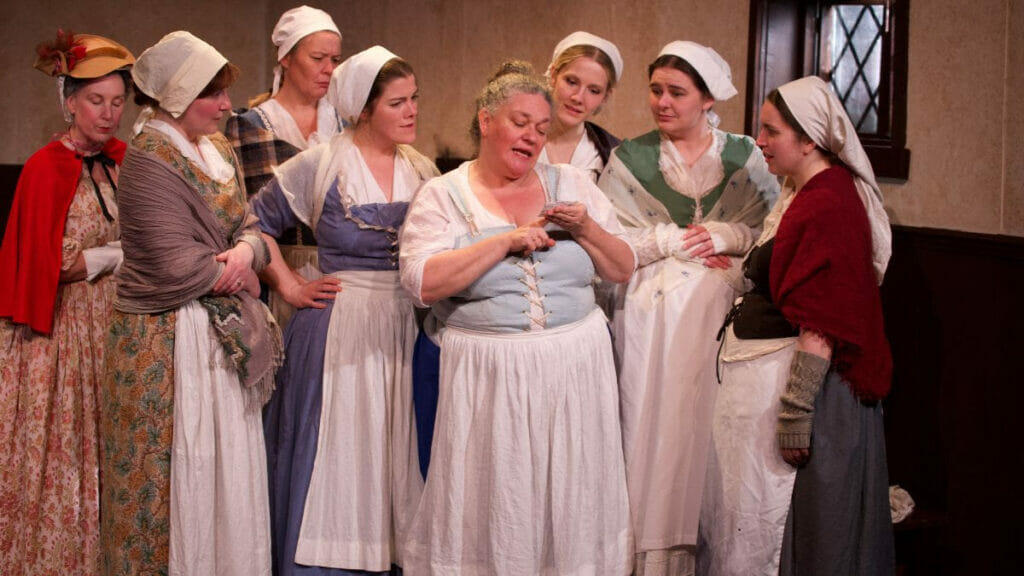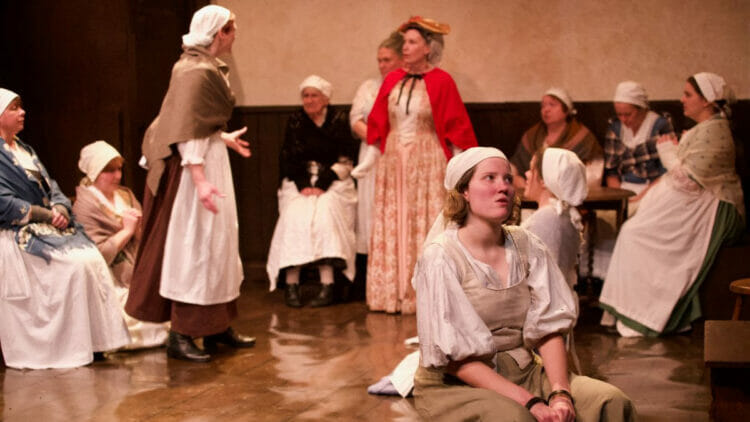PROGRESS Theatre continues its 76th season with the first of its productions for 2023, The Welkin.
Written by Lucy Kirkwood, the play follows the plight of Sally Poppy, a young woman accused of a bloody, gruesome murder.
After she claims she is pregnant, and as her fate seems increasingly sealed by the systems of justice in the mid-1700s, a jury of twelve women is assembled to judge whether she is telling the truth.
The production follows the careful and often frantic deliberation of the jury as they grapple with her caustic, misanthropic attitude and the unreliablity of 18th-century medical practises.
Elizabeth Luke, a put-upon midwife to many of the play’s characters, forms the audience surrogate as she is called upon to complete the jury.
Initially reluctant, she fears that the girl will hang without a fair judgment and relents so that she may be advocated for.
Ms Luke is excellently portrayed by Stephanie Gunner-Lucas, whose experience shines through as she handles both the fierce morality at the character’s heart and the darkness around the fringes with immense capability.
Emotional beats of the play are carried through with due impact and more humorous moments are given enough levity to let the production, and the audience, breathe.
Sally herself, the accused, is well portrayed by long-standing member of Progress’ team Poppy Price, with an outlook that modern audiences will likely resonate with.
Price carries the combative, argumentative Sally with plenty of depth, showing glimpses of the difficult youth which has shaped the character effectively.

Despite the size of the cast and the strength of the protagonists’ portrayals, the rest of the cast refuses to blend into the background.
Each of the 11 other members of the jury is introduced to the audience with simple, well-placed snippets that bring out their divergent personalities.
Characters which could in other productions be reduced to mere comic relief or set dressing are realised and brought to the fore in a number of moments throughout.
Even characters such as Sarah Hollis, who is mute, are fully realised, with Liz Carroll’s nuanced physical performance bringing dynamism and personality to the role.
Tom Ripper is also to be commended for his portrayal of Mr Coombs, whose work at the court sees him banned from speaking also.
Each and every actor on the stage brings a shine to their character in specific moments without feeling like they’re pushing through the rest of the cast.
The set design and production works to compliment the cast as best as possible, with careful attention to detail on the shine of the courtroom floor, wood panelling, and a single-pane, lead-lined window selling the setting completely.
The set seems to sink into the fabric of the theatre’s stage and evaporate, which is to both its own credit and that of the performances.
Particular attention was paid to how the window adds light to the set, with a particularly well-crafted moment where the evening light shines through to illuminate a character’s face towards the middle of the play.
Moments of violence are not common through the play, but well executed and singularly impactful in their use, especially for the baroque cliff-hanger which closes the play’s first half.
Overall, The Welkin has proved to be one of Progress’ strongest productions of the season so far, thanks to the combination of a confident, assured cast and a tense story excellently directed and produced.
While the play is not suitable for a younger audience, its frequently titillating comedy beats and hard-hitting moments of violence or revelation are woven together to portray a number of truths about the voice of women in human discourse.

Ruminations on how women are regarded, both historically and in modern times, are at the heart of the play, and carry through the production at all times.
Despite this, the play does not feel dictatorial in its messages about cultural equality, instead more exploratory.
As such, the play is a breath of fresh air in a theatrical world which still often – sadly– requires conceits such as the Bechdel Test, as the vast majority of the play focuses on the plights of the women.
It is unfortunately striking, though welcome, to see so many female characters explored in such honest, resonant depth, and in all of their flawed humanity.
In this, its comparisons to productions such as Arthur Miller’s The Crucible are well-earned compliments.
Overall, The Welkin sees an accomplished performance, handled with fire and care by all of the ensemble cast, and embellished with fitting staging and determined production.
The Welkin is showing at Progress Theatre, The Mount, from Friday, January 20, to Saturday, January 28.
Tickets are available via: progresstheatre.co.uk/2023-the-welkin






















